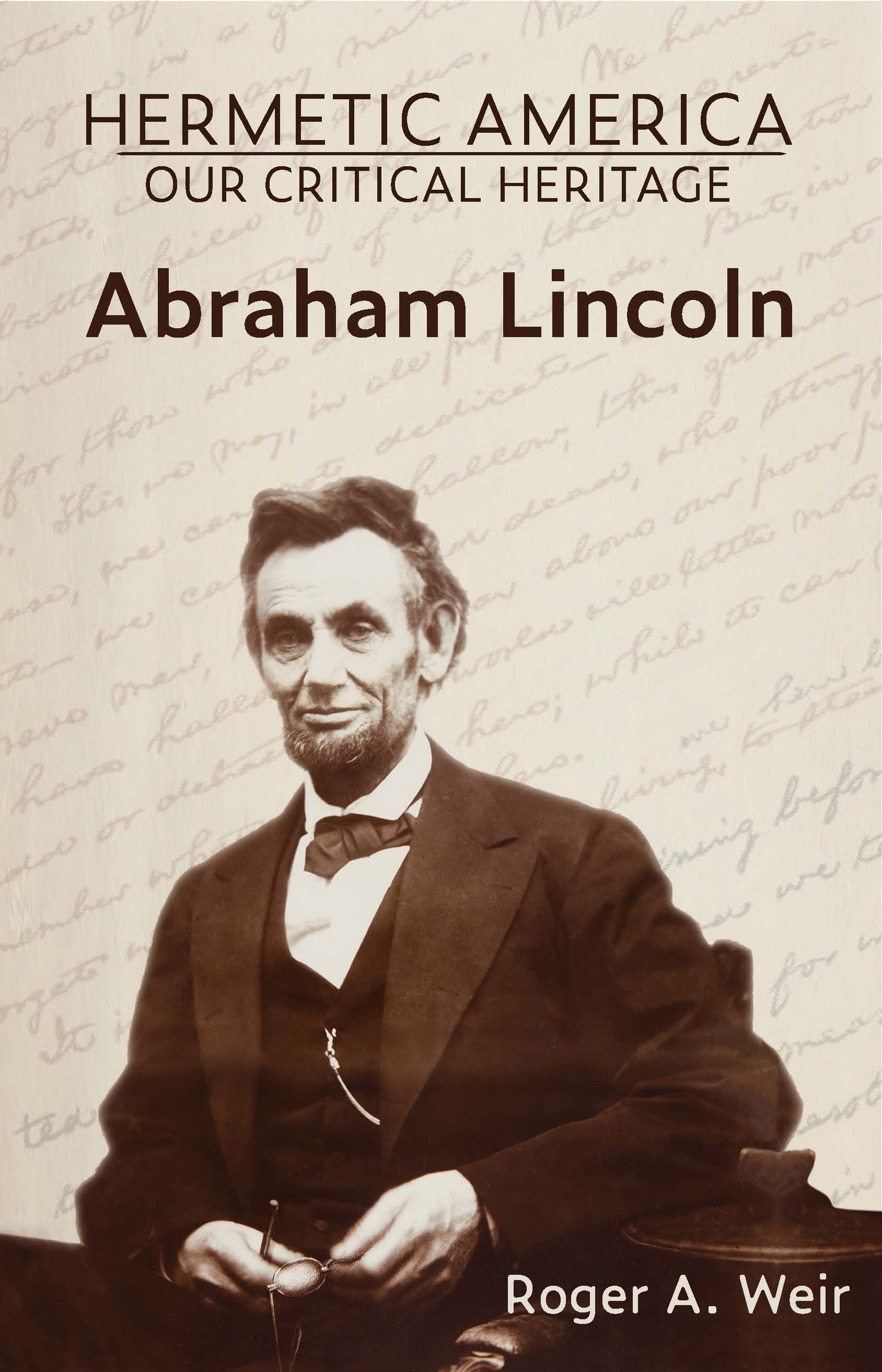 Hermetic America – Our Critical Heritage: Abraham Lincoln
Hermetic America – Our Critical Heritage: Abraham Lincoln
Presented by Roger A. Weir
Philosophical Research Society (Los Angeles, California)
April 25, 1985 and May 2, 1985
Listen to the presentations:
1. Abraham Lincoln: The Wilderness Hero and His Spiritual Path to the White House
2. Abraham Lincoln: The Civil War, Hermetic Unity, and the American Psyche Polarized
Purchase a copy of the book
Download and read: PDF
This book features two presentations on Abraham Lincoln delivered by Roger A. Weir in 1985, entitled Abraham Lincoln: The Wilderness Hero and His Spiritual Path to the White House, and Abraham Lincoln: The Civil War, Hermetic Unity, and the American Psyche Polarized. They are part of a thirteen part series entitled, Hermetic America — Our Critical Heritage: James Fenimore Cooper, Abraham Lincoln, Henry Adams.
In this lecture series Weir examined the creative persons who contributed to the development of America in the context of a vision of America as a land of free peoples. Weir explored how Abraham Lincoln became the man he was, and how he went about the arduous battle among fellow Americans to save what he believed to be a vision of a greater union of humanity. Without question, a ’them and us’ attitude shatters unity.
Both a frontier pragmatist and wisdom sage, Lincoln was able to see beyond the jungle of groups vying for power in the United States, to see the essence of what had to be protected and preserved. Lincoln recognized slavery as an existential threat to democracy and unity that he would have to solve in his time. He also foresaw that future generations would have threats to liberty that they would have to overcome in their own time. Today we find ourselves threatened similarly with adherence to paradigms that exclude or inherently disadvantage individuals without regard for their personal merit.
The strength of American democracy comes from the ability of the individual, of her or his own merits, to run for office, and to simultaneously hold the higher ideals of liberty and unity of humanity in focus. Weir notes that Lincoln feared the political convention approach of candidate nomination might do damage to our democratic institutions, but that the challenge of doing away with it would be left to a future generation.
This book offers the reader an opportunity to appreciate the wisdom of Lincoln and, in a greater sense, how we might also be able to rise to the challenge as he did: to recognize the desires, needs and aspirations of our fellow Americans while keeping in focus a greater vision of liberty to which we can all aspire.